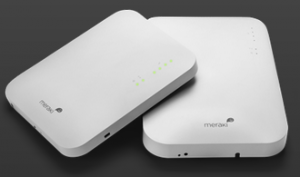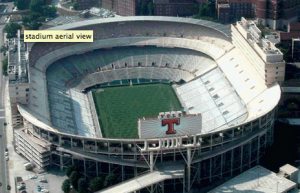Ruckus Wireless has scored a deal to provide a Wi-Fi network for the San Jose Earthquakes, in the team’s new 18,000-seat stadium slated to open in 2015.
The sponsorship agreement will see Ruckus designing and supplying the high-capacity Wi-Fi network in the new stadium, which will be located on Coleman Avenue in San Jose, near the city airport. According to Ruckus the network will use more than 150 of the company’s Ruckus ZoneFlex access points. David Callisch, vice president of corporate marketing for Ruckus, said the deal is a “partnership” with the Earthquakes, with Ruckus providing both some equipment discounts and technical and marketing assistance to make sure the network works well and is readily discovered by the fans coming to the arena.
“This is an exciting project that our fans can look forward to utilizing at our new stadium,” said Earthquakes president Dave Kaval, in a prepared statement. “We want our stadium to reflect our community, and technological innovation is a key component of Silicon Valley. Ruckus Wireless is a great fit because of their local roots and experience working not just with Silicon Valley Wi-Fi network deployments, but with these types of deployments around the world.”
The San Jose deal adds to a growing list of soccer stadium deployment wins for Ruckus, which already provides Wi-Fi at 20,000-seat plus Rio Tinto Stadium in Salt Lake City, Utah (home of the MLS Real Salt Lake club) as well as at several venues in Brazil being readied for the upcoming World Cup. Ruckus also provides the Wi-Fi at Time-Warner Cable Arena in Charlotte, N.C., home of the NBA’s Bobcats, and was also behind a new Wi-Fi network at the BNP Paribas Open in Indian Wells, Calif.
Callisch said the free app at the BNP Open, which allowed fans to watch live video of matches at courts other than the one they were sitting in front of, was the kind of in-stadium use that a cellular DAS just can’t handle.
“A 4G signal is just not suitable for something like high-quality video,” said Callisch. “You really need Wi-Fi for high capacity applications.”
Though Ruckus does sell gear for regular, indoor office-type networks, its line of advanced access points with directional antennas make it a good fit for stadium venues, where being able to fine-tune coverage is a necessity.
Ruckus, which went public on Nov. 16 of 2012, finished its fiscal 2013 year with $263.1 million in revenue, a 22.6 percent increase from the previous year. Its Q4 revenues were $73.0 million. Though Callisch wouldn’t break out what part of that total stadium and other large-venue contracts represent, he did say they all helped the bottom line.
Though large venue deals may involve discounts and other charges for marketing or extra technical help, Callisch did say that any time you deliver equipment in the hundreds, it’s a good business deal.
“We make money on all the [stadium] deals,” Callisch said. “It’s a growing vertical market for us.”








